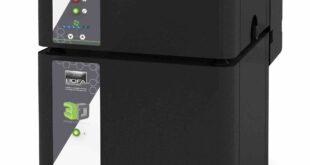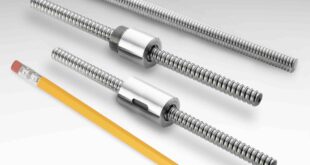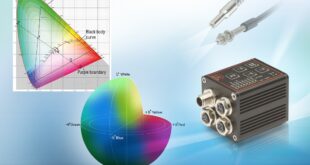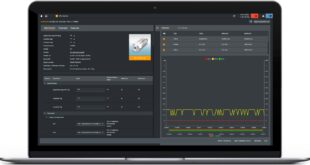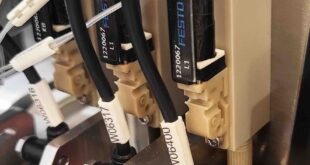Martyn Williams explains why manufacturers should consider independence when striving for more collaborative facilities and supply chains
Independence for collaboration. This concept might sound like an oxymoron, but in the era of smart manufacturing, valuing independence can be the difference between failure and success.
There’s a common misconception that smart manufacturing describes an increase in advanced hardware on the factory floor.
For example, implementations of new robots or automated machinery.
But, that’s not the whole picture.
Smart manufacturing should refer to a greater level of intelligence in relation to production, using data to analyse how processes could be improved and enabling the supply chain to make more informed decisions.
Smart manufacturing brings companies closer together — through global production sites and sprawling supply chains — and this industry trend will continue to promote globalisation.
However, with this increasing pressure to collaborate, manufacturers must make decisions on what technologies can help them achieve this.
Factory floor collaboration
The ability to collect and share data is essential for smart manufacturing. Despite this, the Annual Manufacturing Report 2017 found that just 5% of manufacturers allocated capital investment to smart manufacturing software and systems for operational technology.
Requirements for industrial software can often be overlooked. However, when implementing smart manufacturing you cannot rush the selection of software.
The application needs to be intelligent, easy to integrate and capable of handling and analysing large amounts of data from all areas of the supply chain.
Put simply, the software needs to be collaborative, so where does independence fit in?
Choosing software from an independent vendor ensures that collaboration is not limited to hardware from a specified vendor or that will only incorporate certain models of production machinery.
For example, if a manufacturer wanted to implement new software on the factory floor, they would need to consider compatibility with the factory’s existing equipment.
Generally speaking, a manufacturing facility will include equipment from a variety of different vendors, but for smart manufacturing, all of the devices — such as programmable logic controllers (PLCs), consumption devices and assembly equipment — need to be communicated with at the same time, and potentially, each other.
For machinery using differing communication standards, this can be difficult to implement.
Hardware independent software eliminates this problem. COPA-DATA’s zenon, for example, uses over 300 communications protocols to ensure the software is inclusive to almost every hardware vendor.
Using this type of software, manufacturers do not need to implement entirely new systems, or overhaul their existing equipment.
Instead, their legacy hardware can collaborate seamlessly, regardless of vendor.
Delivering the best results
This level of independence can also assist in collaboration with third party organisations.
For example, as an independent software provider, COPA-DATA partnered with independent systems integrator Capula, to implement new substation control systems for National Grid, the owner and operator of the electricity transmission network in England and Wales
National Grid has an ongoing requirement to refurbish and replace obsolete control systems in its substations, not only to increase the lifetime value of their asset base but to also future-proof them for the requirements of a changing and challenging energy landscape, and for the future of smart energy generation.
As two independent organisations, neither COPA-DATA nor Capula were limited to working with specific hardware vendors — enabling an increased flexibility to deliver the best performance for the end user.
Independence and collaboration ensured that neither party was constrained to a specific hardware vendor, resulting in non-biased decisions that delivered the best solution for this application.
As a result of this collaboration, Capula was awarded the ‘Best Innovation Contributing to Quality and Reliability of Electricity supply’ award at the UK Energy Innovation Awards 2017.
In the era of smart manufacturing, there’s no space for restrictions.
Choosing independence is necessary to ensure that the best decisions are made — inside and outside of the factory walls.
From delivering data to the supply chain, to ensuring that unbiased decisions are made, independence can drive collaboration and, ultimately, success.
All right stop, collaborate and listen.
Martyn Williams is Managing Director of industrial software specialist COPA-DATA UK.
 Engineer News Network The ultimate online news and information resource for today’s engineer
Engineer News Network The ultimate online news and information resource for today’s engineer
